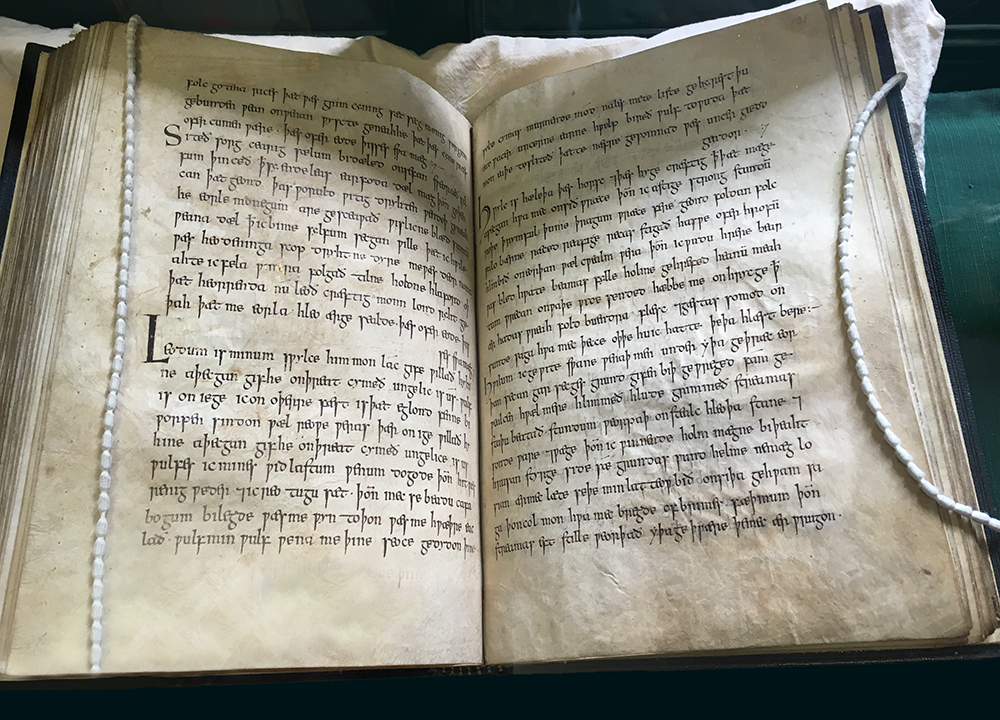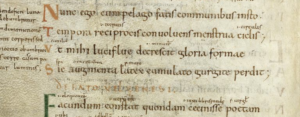
Through many articles, sculptures and readings it is known that the Anglo Saxons had a very rich background when it came to literature. The Anglo Saxons riddles history tells us all the important information regarding the riddles during the period of the Anglo Saxons.
But, why do we study regarding the riddles of the Anglo Saxons? This is because these riddles during the period of the Anglo Saxons are known to be a part of the rich background of literature. The Anglo Saxons riddles were not only a major part of the rich literary genre but were also a prestigious genre of literature in the kingdoms of the Anglo Saxons England. These riddles were mainly written in two different languages, that is, old English and Latin.
Amongst all of these riddles, the Anglo Saxons riddles written in old English were the ones which were the most famous. These riddles were found in the Exeter Book and were called the Anglo Saxons riddles of the Exeter book during the 10th century. The 7th to the 8th century was the mark of the pre-eminent riddles of the Anglo Saxons in the Latin language composed by the scholar, Aldhelm.
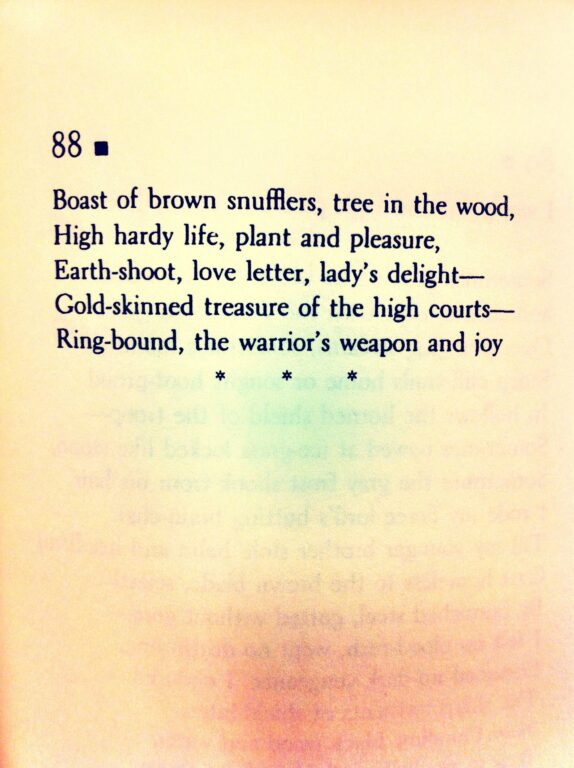
Range of Anglo Saxons Riddles
Contents
The range of the riddles of the Anglo Saxons period ranged through a great variety. The brackets of the range started from being a theological point of view and were extended to being scholarly to obscene and comical. This great range of the riddles not only gave a new viewpoint on how to describe the entire world but also gave a new perspective of thinking.
The Anglo Saxons riddles lesson plans were not only to merely study or read them but was also to perform or be presentable. This marked a great glimpse into the culture and life of the era of the Anglo Saxons.
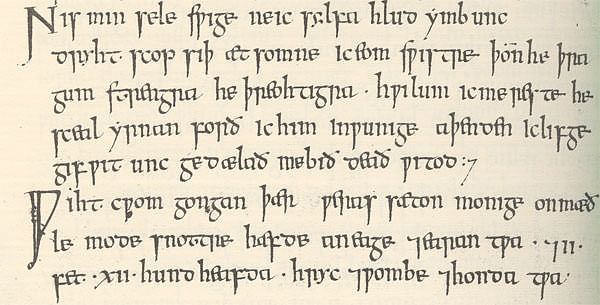
The Anglo Latin Enigmata
Enigmatas are nothing but the earliest attested riddles of the Anglo Saxons when the riddles used to be written in the Latin language. This was during the 7th to 8th century. It is also known that these enigmatas were the ones to set up a thriving genre of literary, which later inspired the riddles written in the vernacular language, that is, old English and present in the Exeter Book. There was something which made these riddles of the Anglo Saxons in Latin different from the ones in old English.
The Anglo Saxons enigmatas were the ones which were always presented in the manuscripts. But, the Anglo Saxons riddles and answers were always presented together. The most catching part of these riddles was that the Anglo Saxons riddles answers were the title of the poem. Not only this, but it also gave a challenging task to all the readers to always guess the right solution of the riddle.
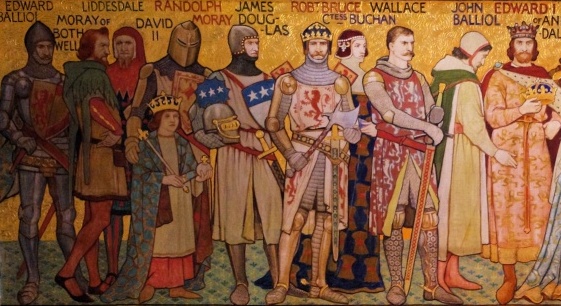
An example of the Anglo Saxons Enigmata is as follows:
“Ostriger en arvo vernabam frondibus hirtis Conquilio similis: sic cocci murice rubro Purpureus stillat sanguis de palmite guttis. Exuvias vitae mandenti tollere nolo Mitia nec penitus spoliabunt mente venena; Sed tamen insanum vexat dementia cordis Dum rotat in giro vecors vertigine membra.”
As per the literary translation of this enigmata:
“A purple flower, I grow in the fields with shaggy foliage. I am very similar to an oyster: thus, with reddened dye of scarlet a purplish blood oozes by drops from my branches. I do not wish to snatch away the spoils of life from him who eats me, nor do my gentle poisons deprive him utterly of reason. Nevertheless, a certain touch of insanity torments him as, mad with dizziness, he whirls his limbs in a circle.”
Anglo Saxons Riddles in the Exeter Book
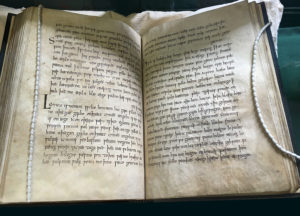
Along with many other writings, religious and secular poems, the Exeter book also consisted of 94 riddles, which are the Anglo Saxons riddles written in the old English language. All these poems of the Exeter book have been written in the alliterative verse.
One main and common point of these riddles was that these riddles used to always end with the injunction saying, “say what I am called”, which led to the Anglo Saxons riddle key.
Most of the Anglo Saxon riddle examples with answers as per the Exeter book were based on religious background. These riddles which were written in old English are unlike from the ones written in Latin. These riddles didn’t focus on intellectual obscurity but focused on the describing processes of transformation and manufacture, thereby, making the riddles easier to be solved than the enigmatas.
There are also many Anglo Saxons riddles for children and Anglo Saxons riddles worksheets present in the Exeter book of the Anglo Saxons riddles written in old English.
Following are two Anglo Saxons riddles examples from the Exeter Book:
“A noble guest of great lineage dwells
In the house of man. Grim hunger
Cannot harm him, nor feverish thirst,
Nor age, nor illness. If the servant
Of the guest who rules, serves well
On the journey, they will find together
Bliss and well-being, a feast of fate;
If the slave will not as a brother be ruled
By a lord he should fear and follow
Then both will suffer and sire a family
Of sorrows when, springing from the world,
They leave the bright bosom of one kinswoman,
Mother and sister, who nourished them.
Let the man who knows noble words
Say what the guest and servant are called.”
and the second one is,
“I am wonderful help to women,
The hope of something to come. I harm
No citizen except my slayer.
Rooted I stand on a high bed.
I am shaggy below. Sometimes the beautiful
Peasant’s daughter, an eager-armed,
Proud woman grabs my body,
Rushes my red skin, holds me hard,
Claims my head. The curly-haired
Woman who catches me fast will feel
Our meeting. Her eye will be wet.”
If we look at the second riddle, then there are two probable answers: one could be an onion and another could be a man’s genitalia. Though this riddle is obscene, not all riddles of the Exeter book are obscene. In fact, there is also the presence of religious riddles in the Exeter Book. This concludes a brief insight into the very famous Anglo Saxon Riddles.
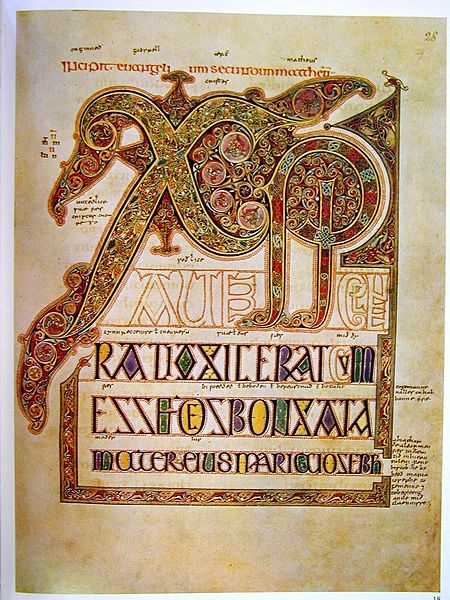
Some more riddles are:
“Four dilly – dandies (teats on the udder)
Four stick standies (legs)
Two Croocker (horns)
Two lookers (eyes)
And a wig-wag (tail)”
“When I am alive I do not speak.
Anyone who wants to takes me captive and cuts off my head.
They bite my bare body.
I do no harm to anyone unless they cut me first.
Then I soon make them cry.”
“I am all on my own,
Wounded by iron weapons and scarred by swords.
I often see battle.
I am tired of fighting.
I do not expect to be allowed to retire from warfare
Before I am completely done for.
At the wall of the city, I am knocked about
And bitten again and again.
Hard edged things made by the blacksmith’s hammer attack me.
Each time I wait for something worse.
I have never been able to find a doctor who could make me better
Or give me medicine made from herbs.
Instead the sword gashes all over me grow bigger day and night.”
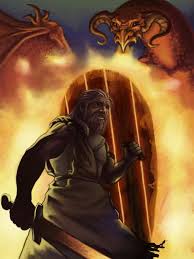
The above riddle is taken from the epic Beowulf, which is a source of several such clever riddles. The answer to the last one is “shield”.
